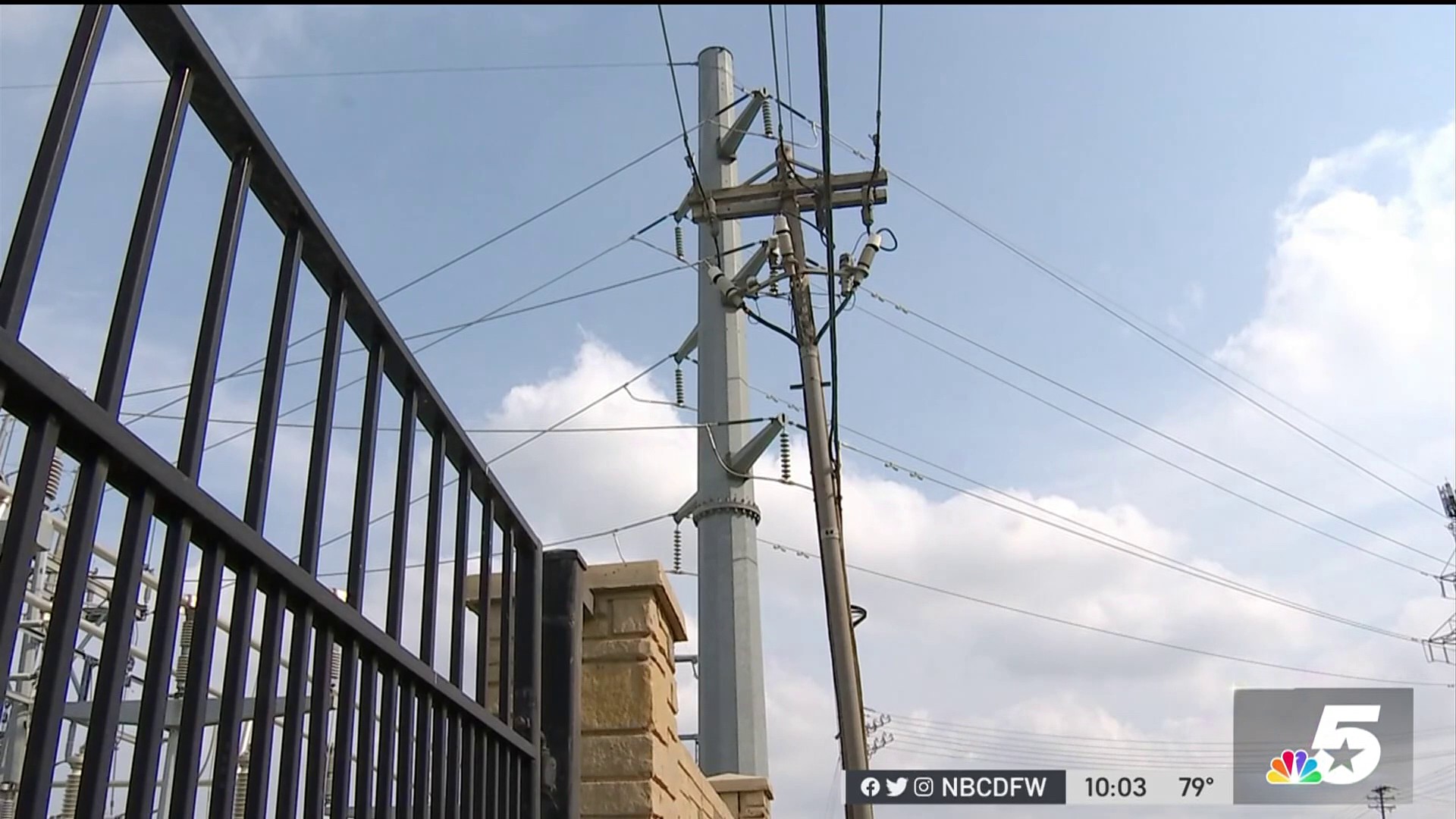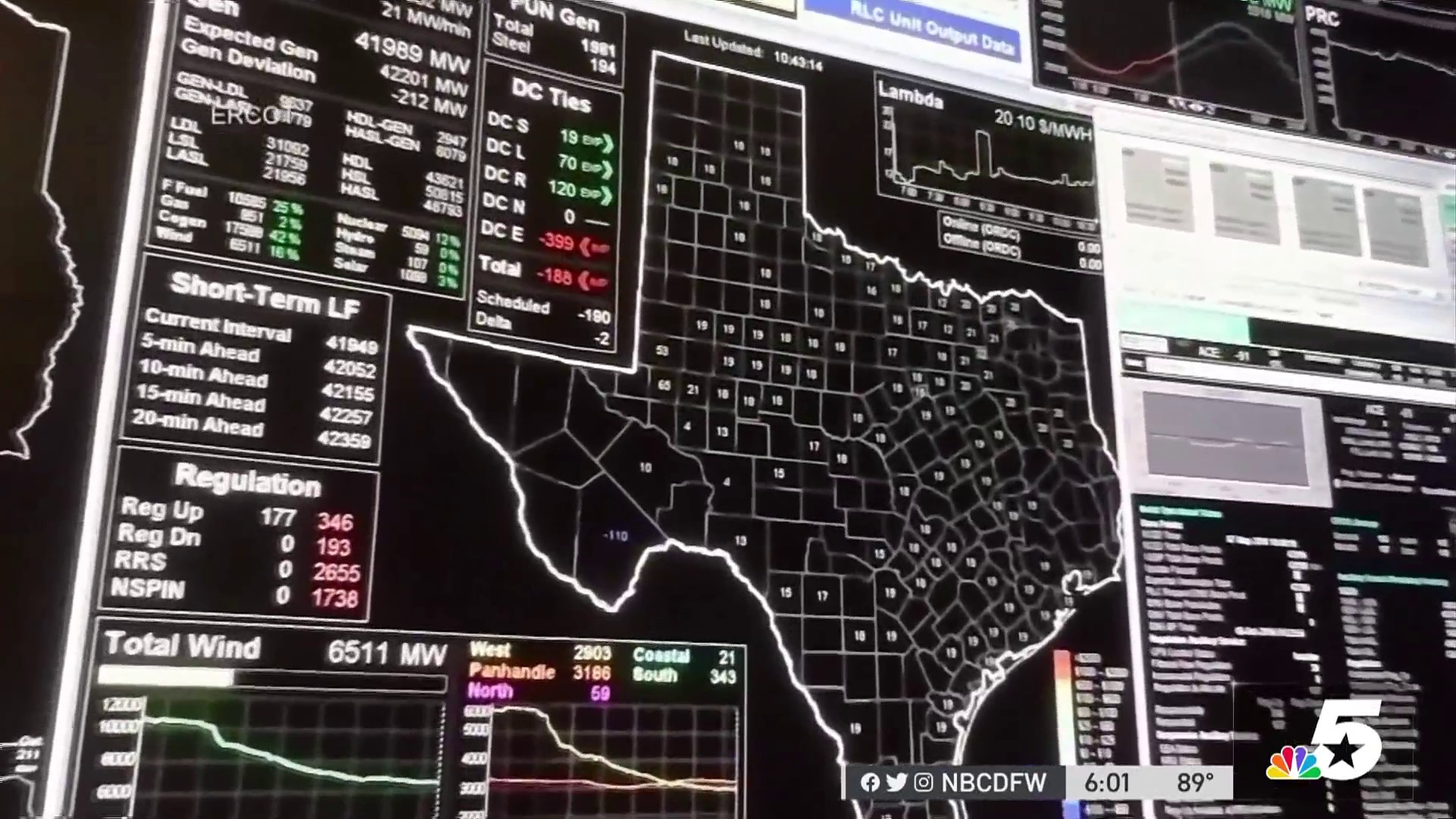As cold temps stick around and the chance for snow increases for Thursday, parents and students across North Texas wonder if classes will be canceled.
School districts in the area, including the Dallas ISD, said they are still in the assessment and planning phase, and a regular schedule should be assumed until further notice. David Bates, chief of operations for the Dallas ISD said this week’s bitter cold has led to earlier start times for employees.
See the latest school closings here.
“Like 5 a.m. or by 5:30 a.m., we're dispatching people to the trouble spots,” Bates said.
Get top local stories in DFW delivered to you every morning. >Sign up for NBC DFW's News Headlines newsletter.
While students barely returned to class Tuesday morning, winterization preparations across all Dallas ISD schools and buildings began as early as Sunday.
“So, we're fortunate enough to have started yesterday before kids returned, we had our teachers and all our essential staff really preparing like you would at your house. You know, cover the hose beds, look at all the faucets and things of that nature,” Bates said. “We went and shut off some water sources on the exterior of the buildings… And then we even had our transportation department come in and start the busses yesterday, run around, make sure the heat worked.”
Crews have also been focused on preventative maintenance for boilers.
“We monitor, centrally, all of our HVAC systems,” Bates said. “We've been modernizing since the 2015 bond and with the 2020 bond, we've really been able to view and see something if it goes down.”
However, the decision on whether schools will be canceled due to the snow expected Thursday afternoon will be largely based on conversations with federal agencies.
“We have communications with the National Weather Service,” Bates said.
Usually, calls are as early as 3 a.m. or 5 a.m., Bates said.
“We sit on a call with them and we take that information with our Office of Emergency Management, our police department,” Bates said.
Dallas ISD and surrounding districts have a final call scheduled with the NWS for Wednesday at 1 p.m.
“We’ll make the decision early to give our parents and our communities time to respond,” Bates said.
In a press conference Tuesday afternoon, City of Dallas leadership said they are standing by to help the school district.
“If there’s any resource needs that we can provide or vice versa, we communicate frequently,” said Kevin Oden, director of emergency management and crisis response for Dallas.
Over the years, Bates said, their relationship with city resources has strengthened.
“Our office of emergency management and our police department do a really good job communicating with them,” Bates said. “We’ve coordinated a lot more with the fire department, right, because we've seen a lot of broken pipes in the past. And they've been very helpful in that coordination and to kind of save our buildings.”
And while some are hopeful snow will accumulate; there’s a chance class could go on as scheduled.
WHAT IS ERCOT'S TXANS?
“It would be like today. Today was cold. We just want to make sure that our families send their kids prepared,” Bates said. “To have the proper clothing, have jackets if they're catching the bus or they're just getting dropped off, make sure that they're bundled up.”
Bates assured his team and other emergency departments would continue working to ensure the safety and warmth of their students, teachers, and staff.
“I’m really proud of the staff that we have here,” Bates said. “We've been through it since 2019: a tornado, you know, ice armageddon, and then every year now, we've seemed to have storms like this. And our guys don't blink.”
According to Bates, Dallas ISD expects to make a final decision on school closures or delays by Wednesday afternoon.
COLD WEATHER PREPARATION

Winterizing Your Home
Before the cold, replace worn weatherstripping on doors and windows to ensure a good seal. This will make sure warm air stays inside and cold air stays outside. Most modern windows are sealed inside the frame, but older windows may be sealed with a glaze that can crack and need replacing. The glaze may need to be applied above a certain temperature and it'll need time to cure -- this maintenance is ideally done in the spring or fall. Lastly, check your gutters to ensure they are clear and allow water to flow freely to the downspout. Blocked gutters can lead to water entering the home. The Texas Department of Insurance also recommends trimming trees away from power lines, homes, and cars and checking the insulation level in attics.
Protecting Your Pipes
Most North Texans know to insulate their outdoor faucets, but if the cold snap is prolonged it could be a good idea to also leave inside faucets on external walls dripping overnight so that they don't freeze. The drip, drip, drip from running faucets, if heard, can be annoying, so put a sponge or towel in the sink to silently catch each drop. If you're leaving town for a few days, the Texas Department of Insurance recommends leaving cabinet doors open so that pipes on external walls are more exposed to heat. If you have pipes in an attic or crawlspace or any other exposed pipes outdoors, they'll need insulation, too. For external faucets, disconnect hoses and insulate the valves. Wrapping valves with towels is not the best long-term solution. Most, if not all, North Texas hardware stores sell inexpensive exterior faucet covers made of foam that easily attach to the faucet bib in just a few seconds and do a great job protecting the pipe from freezing. If you suspect a pipe has frozen, keep the faucet open so that water can flow when it melts. Additionally, make sure you know where your main water valve is located (and how to turn it off) in the event a pipe bursts.

Bring in Your Pets
Even if you have a pet or animal that normally lives or sleeps outdoors, they could be susceptible to cold, hypothermia, and pneumonia. The SPCA of Texas says if you're cold outside, odds are your pet is cold too. Bring pets inside and make sure other outdoor animals have appropriate shelter, dry and well insulated, to protect them from frigid temperatures and possible death.
Protecting Your Plants
Perennial potted plants should be brought indoors. Plants that cannot be brought inside will need to be covered. Delicate plants can be covered with sheets, blankets, or landscaping frost blankets, which can trap heat. During times of extreme cold, multiple frost blankets may be used. For plants left outside a day or two before a freeze hits, the Dallas Arboretum recommends watering the soil only by hand, keeping the foliage dry to insulate the plant's roots. The Texas A&M AgriLife Extension has more here on how to protect plants from frosts and freezes. AgriLife also has tips on how to plant for the winter.

Turn Off Your Sprinkler System
You want to turn off your irrigation system for several reasons. One is that you don't want it running on its normal schedule, potentially throwing water on streets where it can freeze and be dangerous for passing cars. Second, you don't want to risk any broken pipes or valves that may come with a system that has not been winterized. To winterize your system, the city of Fort Worth recommends that timers and back-flow devices both be turned off, even if you have freeze or rain sensors installed and that the main line be drained. Any pipes that are above the ground should also be insulated.
HVAC
Many air filters should be changed or cleaned every three months or every season. But that's not the only winterizing needed for your HVAC system. You should check your ductwork regularly for holes (whether from vibration or rodents) to ensure the airflow is uninterrupted. If part of your HVAC is in the attic, it may also be home to rats, mice, and squirrels who find the unit's warmth an ideal spot to build a nest.
Swimming Pools
Even if you have a freeze protector among your pool equipment, you'll want to look at the pump daily to ensure it's moving water through your pipes. Those pipes, too, can burst if they freeze.
Batteries
Having fresh batteries for flashlights during a power outage is always a good idea. If you didn't replace the batteries in your smoke and carbon monoxide detectors during daylight saving time -- now is a good time to make the switch. It's also a good idea to ensure your phone is charged so that you'll have access to timely information in the event of a power loss. Having a backup battery or power source to recharge your phone is also a good idea.



